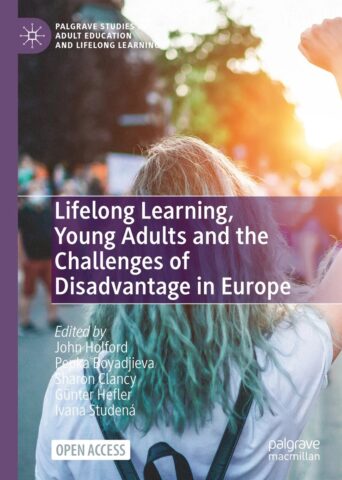
Senior researcher at the Institute for Forecasting CSPS SAS in Bratislava
13. December 2022
CENTROVICA 2023
22. June 2023Ivana Studená from the Institute for Forecasting of CSPS SAS is editor of the book „Lifelong Learning, Young Adults and the Challenges of Disadvantage in Europe“ https://link.springer.com/book/10.1007/978-3-031-14109-6 in collaboration with John Holford (University of Nottingham), Pepka Boyadjieva (Bulgarian Academy of Sciences), Sharon Clancy (University of Nottingham), and Günter Hefler (3s). Additionally, she is co-author of multiple chapters.
The book was published by Palgrave Macmillan as part of the Palgrave Studies in Adult Education and Lifelong Learning and it is available online. The publication is a product of the ENLIVEN project.
About the book:
This open-access book challenges international policy ‘groupthink’ about lifelong learning. Adult learning should be reimagined as central to democratic society. Young adults, especially from disadvantaged backgrounds, engage more in education and training, and learn more day-to-day at work, if provision is democratically organised and based on enduring and inclusive institutional networks, and when jobs encourage and reward the acquisition of skills. Using innovative qualitative and quantitative methods, the contributors develop a critical perspective on dominant policies, investigating – across the European Union and Australia – how ‘vulnerable’ young adults experience programmes designed to improve their ‘employability’, and how ‘skills for jobs’ policies squeeze out wider – and wiser – ideas of what education and training should do. Chapters show why some provision works for those with poor educational backgrounds, why labour market and educational institutions matter so much, how adult education can empower and expand people’s agency, and the challenges of using artificial intelligence in lifelong learning policy-making. Several investigate the pivotal role of workplace learning in organisational life, and in learning during ‘emerging adulthood’. Important comparative studies of workplace learning in the metals, retail and adult education sectors show the role of management, trade unions and social movements in young adults’ learning.

